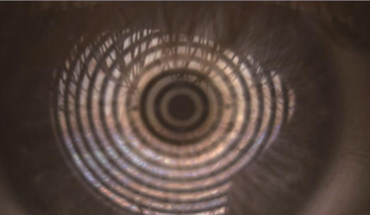Dry Eye Analyzer SM800
Comprehensive Analysis Platform for Scientific Dry Eye Diagnosis
- Dry Eye Examination
- Anterior Segment Analysis
- Contact Lens Fitting
- Patient Record Management
- Easy-to-Use Design
About the Dry Eye Analyzer SM800
This is an easy-to-use dry eye diagnosis system. After 5 to 8 minutes training, it is easy to get started, and complete a full set of dry eye tests independently. The machine adopts a two-stage design, the miniaturized Placido disk does not need to be inserted and removed, and the operation is easy. Placido disk does not need to be inserted and removed, and can freely switch between dry eye inspection and anterior segment inspection, realizing dual use of one machine.
Technical Data
| Dry Eye | Placido Disk | 23 Rings, Plunger Type |
| Tears River Height Measurement | Image Enlargement, Software Calculation/Automatic Calculation | |
| Lipid Layer Analysis | Template Contrast Fractionation(Lipid Layer Thickness Range) | |
| Meibomian Gland Analysis | Software Calculation/Automatic Calculation | |
| Glandular Opening | Template Contrast Fractionation | |
| Red Eye Analysis | Software Calculation/Automatic Calculation | |
| Non-invasive Tear Film Rupture Time | Shooting Time≤25sec.
Automatic Calculation of First/Mean Rupture Time |
|
| Optics | Eyepiece | 12.5X |
| Total Magnifications | 6.4X, 10X, 16X, 25.6X, 40X | |
| Diameter of Light Spot | Φ0.2mm,φ1mm,φ2mm, φ5mm,φ10mm, φ14mm | |
| Slit Angle | 0-180°Continuously Adjustable from Vertical to Horizontal Direction | |
| Slit Inclination | 5°,10°,15°,20° | |
| Filter | Dimmer,Heat Absorption, Gray, Redfree, Cobalt Blue | |
| Camera | 2410 Mega Pixel | |
| Infrared Photography | Automatic Switching | |
| Slit Width | 0-14mm Continuously Adjustable | |
| Slit Length | 1-14mm Continuously Adjustable |
Features of SM800

SM800
- Excellent Imaging Performance
- Outstanding Software Services
- Perfect Data Management System
6 Functions of Dry Eye Analysis
- Gallery
Automatic Assessment By Deep Learning (3)
Related Products (4)
Dry eye, also known as keratoconjunctival xerosis, is a common and complex eye disease caused by insufficient tear secretion, excessive evaporation or abnormal tear composition. It can cause eye discomfort and visual dysfunction.
Dry eye symptoms usually include eye fatigue, foreign body sensation, dryness, severe cases will also appear eye burning, acid swelling, red eyes, eye pain, photophobia, and may develop to corneal damage. Dry eye, if left untreated, can develop into corneal ulcers, perforations, or secondary infections that seriously threaten vision
The preferred treatment for dry eye is drug therapy, which mainly uses artificial tears or autologous serum to replace tear components, and alleviates symptoms by using drugs to promote tear secretion and reduce eye surface inflammation. For excessive tear evaporation, wet-room goggles and silicone eye masks can be used, or non-drug treatment such as lacrimal spot closure and meibomian gland blockage.
Age, sex, medication history, chronic diseases such as diabetes and rheumatoid arthritis were all high-risk groups to have dry eye diseases.
In order to better prevent dry eyes, it is recommended that high-risk groups improve the living and working environment, avoid looking at electronic screens for a long time, maintain good eye habits, and regularly go to the ophthalmic clinic for review.

















